Russias Foreign Policy
Change and Continuity in National Identity
Fifth Edition
Andrei P. Tsygankov
San Francisco State University

Executive Editor: Susan McEachern
Editorial Assistant: Katelyn Turner
Senior Marketing Manager: Amy Whitaker
Credits and acknowledgments for material borrowed from other sources, and reproduced with permission, appear on the appropriate page within the text.
Published by Rowman & Littlefield
An imprint of The Rowman & Littlefield Publishing Group, Inc.
4501 Forbes Boulevard, Suite 200, Lanham, Maryland 20706
www.rowman.com
6 Tinworth Street, London SE11 5AL, United Kingdom
Copyright 2019 by The Rowman & Littlefield Publishing Group, Inc.
First Edition 2006. Second Edition 2010. Third Edition 2013. Fourth Edition 2016.
All rights reserved. No part of this book may be reproduced in any form or by any electronic or mechanical means, including information storage and retrieval systems, without written permission from the publisher, except by a reviewer who may quote passages in a review.
British Library Cataloguing in Publication Information Available
Library of Congress Cataloging-in-Publication Data
Names: Tsygankov, Andrei P., 1964 author.
Title: Russia's foreign policy : change and continuity in national identity / Andrei P. Tsygankov.
Description: Fifth edition. | Lanham : Rowman & Littlefield, [2019] | Includes bibliographical references and index.
Identifiers: LCCN 2018054050 (print) | LCCN 2018058054 (ebook) | ISBN 9781538124086 (electronic) | ISBN 978153812408 (cloth : alk. paper) | ISBN 9781538124079 (pbk. : alk. paper)
Subjects: LCSH: Russia (Federation)Foreign relations. | Soviet UnionForeign relations. | Great powers. | Russia (Federation)Foreign relationsWestern countries. | Western countriesForeign relationsRussia (Federation) | NationalismRussia (Federation) | Social changeRussia (Federation)
Classification: LCC DK510.764 (ebook) | LCC DK510.764 .T785 2019 (print) | DDC 327.47dc23
LC record available at https://lccn.loc.gov/2018054050
 The paper used in this publication meets the minimum requirements of American National Standard for Information SciencesPermanence of Paper for Printed Library Materials, ANSI/NISO Z39.481992.
The paper used in this publication meets the minimum requirements of American National Standard for Information SciencesPermanence of Paper for Printed Library Materials, ANSI/NISO Z39.481992.
Printed in the United States of America
Contents
Tables
Note on the Transliteration
I n transliterating names from the Russian, I have used y to denote , to denote and , yu to denote , ya to denote , i to denote and , iyi to denote double , e to denote , kh to denote , zh to denote , ts to denote , ch to denote , sh to denote , and sch to denote . I have also used Ye to distinguish the sound of E (such as Yevropa) at the beginning of a word from that in the middle of a word (such as vneshnei). Everywhere, I did not distinguish between e and . Original spelling is retained in quotations.
Chronology of Key Foreign Policy Events, 19792018
1979 December | Soviet Union sends troops to Afghanistan |
1983 March | U.S. president Ronald Reagan announces the Strategic Defense Initiative |
1985 March April | U.S.-Soviet arms negotiations in Geneva Gorbachev announces a unilateral moratorium on deployment of intermediate-range nuclear missiles and proposes a moratorium on all nuclear weapons tests Eduard Shevardnadze succeeds Andrei Gromyko as Soviet foreign minister |
July | Soviet Union imposes five-month moratorium on nuclear weapons tests, making its extension contingent upon a similar U.S. response |
September | Moscow proposes at Geneva negotiations that the United States and the USSR reduce long- and medium-range nuclear weapons by 50 percent |
1986 January | Gorbachev proposes a ban on all nuclear weapons by the year 2000 |
June | Warsaw Pact meeting in Budapest proposes mutual Warsaw PactNATO troops reduction of 100,000 to 150,000 men and the reduction of military capabilities to those necessary for defense |
July | Gorbachev announces in Vladivostok a five-point plan for cooperation in the Asia-Pacific region and advocates closer ties with China |
October | Reagan and Gorbachev meet in Reykjavik, Iceland |
1987 May | General Dmitri Yazov is named the new Soviet defense minister |
December | Gorbachev and Reagan sign in Washington the INF treaty eliminating all 2,611 Soviet and U.S. intermediate-range nuclear forces |
1988 January | Gorbachev announces the need for innovative policies in Eastern Europe |
May | U.S.-Soviet summit in Moscow |
December | Gorbachev announces before the United Nations General Assembly a unilateral reduction of Soviet forces by some 500,000 men, 10,000 tanks, 8,500 artillery pieces, and 800 combat aircraft |
1989 April | Soviet crackdown on Georgian nationalists in Tbilisi; twenty demonstrators killed and two hundred wounded Unilateral withdrawal of Soviet forces from Hungary begins |
May | Gorbachev before Council of Europe promises not to interfere militarily in political events in Eastern Europe |
October | Shevardnadze proclaims before the Supreme Soviet that the Soviet invasion in Afghanistan in 1979 violated the norms of proper behavior and that the Krasnoyarsk radar installation is illegal under the 1972 antiballistic missile treaty |
December | Big Four (United States, France, Great Britain, and USSR) meet to discuss the status of Berlin |
1990 January | Soviet troops are deployed to Azerbaijan in the wake of massive anti-Armenian demonstrations |
February | Two Plus Four talks on German reunification announced |
March | In response to Lithuanias declaration of independence, Soviet paratroopers seize the headquarters of the Lithuanian Communist Party |
May | U.S.-Soviet summit in Washington |
July | Gorbachev and Kohl announce agreement to allow reunified Germany to belong to NATO |
November | NATO and Warsaw Pact states sign the CFE treaty and the Charter of Paris at the CSCE Summit Gorbachev proposes a new Union treaty |
December | Shevardnadze resigns as Soviet foreign minister |
1991 January | Soviet troops crack down on pro-independence forces in Lithuania and Latvia; nineteen protesters are killed |
March | In the Soviet referendum, voters choose to preserve the union; the Baltic States, Armenia, Georgia, and Moldova boycott the vote |
July | Warsaw Pact is disbanded in Prague Bush and Gorbachev reach an agreement in Moscow on the Strategic Arms Reduction Treaty (START) Ten Soviet republics reach an agreement on a new Union treaty to be signed on August 20 |
August |
Next page
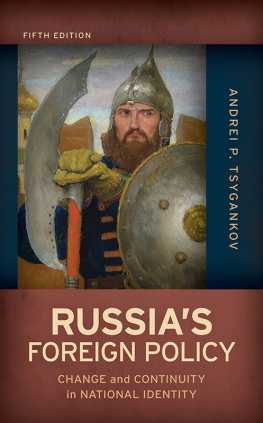

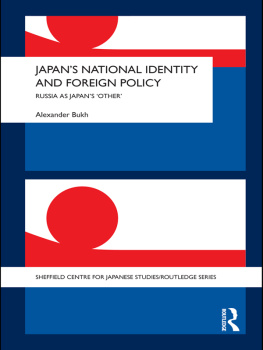
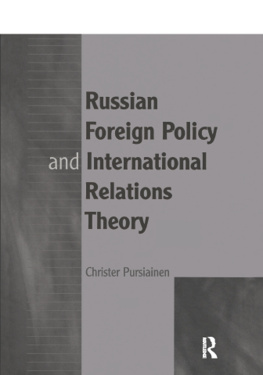
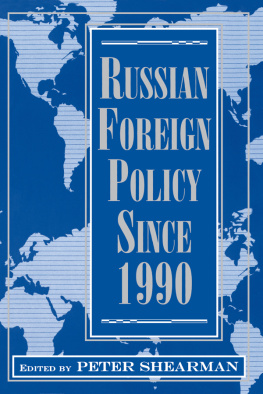
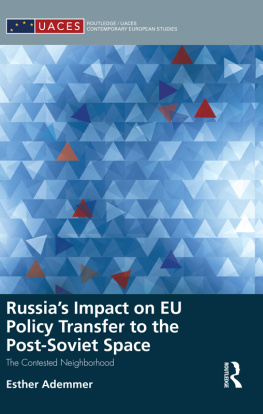
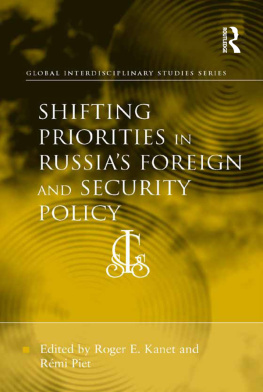
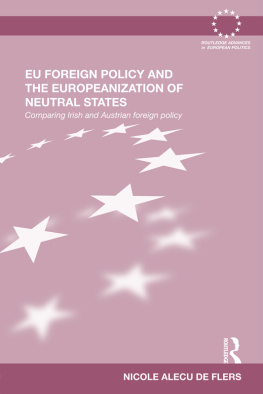

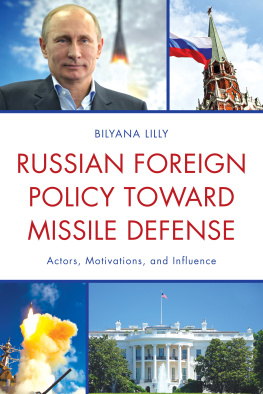


 The paper used in this publication meets the minimum requirements of American National Standard for Information SciencesPermanence of Paper for Printed Library Materials, ANSI/NISO Z39.481992.
The paper used in this publication meets the minimum requirements of American National Standard for Information SciencesPermanence of Paper for Printed Library Materials, ANSI/NISO Z39.481992.